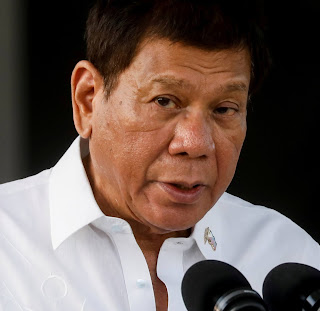Radical Democracy debate heats up among young scholars in the South
By Gerry F. Arambala
Chairperson, Philosophy Department
La Salle University, Ozamiz City
Discussions on President Rodrigo Duterte's radical politics are heating up among young scholars in the South. The works of Patricio Abinales, Heidi K. Gloria, and Reynaldo Ileto provide the historical context. Dr. Christopher Ryan Maboloc, who is recognized by Dr. Julio Teehankee as the first to use Chantal Mouffe's agonistic politics in interpreting the rise to power of President Duterte, is cited by the likes of Wataru Kusaka, Karl Gaspar, and Fr. Jose Mario Francisco, SJ. Dr. Maboloc, who teaches philosophy at Ateneo de Davao University, argues that the contested nature of politics in the country can be traced to the unjust structures of post-colonial Philippine society.
In a recent talk, Prof. Menelito Mansueto of Letran suggested that non-dominant narratives have been silenced after EDSA. In an online article, UP Cebu Prof. Regletto Imbong wrote a critical but fair comment on Maboloc's work, claiming that he (Maboloc) missed the fact that exclusion is not exclusive to Mindanao but is experienced by all poor people in the country. Meanwhile, Fr. Raymun Festin, SVD analyzed Maboloc's radical democracy hypothesis with regard to Duterte's role in Philippine politics. Dr. Maboloc has published several papers on the topic, his position anchored mainly in the failures of the country's liberal institutions due to the elitist nature of Philippine democracy.
Dean Benjie Labastin's work contrasting radical politics and Dutertismo ramains pivotal in all the debates. Maboloc's presentation of his paper in a UST conference elicited various reactions and tough questions, but the scholar was firm on his stand. In the end, Maboloc's work can be credited for introducing the agonistic theory of democracy in explaining Duterte's unconventional approach. In a paper that will be released as a chapter in a book to be published in the US, I have discussed the important role played by our local scholars in understanding the politics of our time. I will present the nature of politics in Ozamiz, which can be considered as contested.



